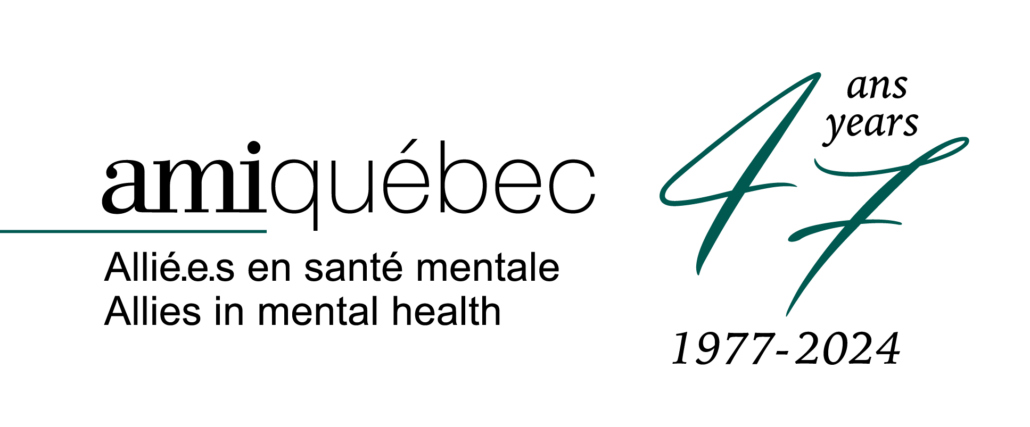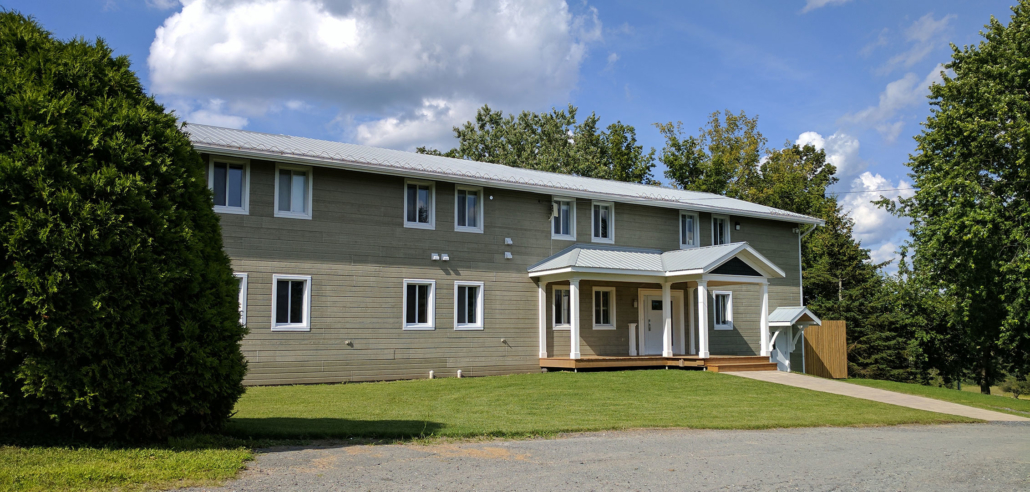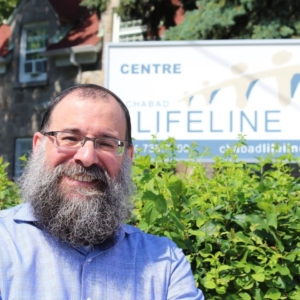Mental Health and Addiction are Often Bedfellows
Dunham House and Chabad Lifeline recognize and address both
For help with addiction, click HERE to visit our resource list.
Dunham House Residential Treatment Centre
We spoke with Anthony Berger, clinical supervisor at Dunham House, about the organization and how they help their clients.
What does Dunham House offer? Can you describe your program for us?
Dunham House is a residential treatment centre that helps individuals who have co-existing addiction challenges and mental health disorders such as depression, anxiety, schizophrenia, or a personality disorder. Our program lasts six months. It is focused on a psycho- educational, evidence- based approach and uses techniques from cognitive behavioural therapy (CBT) and dialectical behavioural therapy (DBT). Our services include workshops, individual and group counselling, and therapeutic activities like physical exercise, yoga, music therapy, and pottery. Workshops focus on topics such as stress management, communication, and emotional regulation. Our program is an alternative to the 12-step Alcoholics Anonymous (AA) program; we want clients to not only overcome their addiction, but work on their well-being and learn life skills that they can use when they leave our facility.
Who are your clients?
Our program is for men and women 18 years old or older. Our services are catered towards the anglophone community, but we do have some francophone clients.
How is Dunham House different from other rehabilitation programs?
We offer a slightly more comprehensive approach compared to many other treatment centres. Many treatment centres usually focus on just substance abuse or just mental health disorders, but at Dunham House we treat both, and take both into consideration when creating a client’s individualized treatment plan. We want our clients to not only heal, but to also fall back in love with life again and learn to be at peace with who they are.
Do you follow up with clients after they have completed your program?
The fact that we have a small staff and many of our clients come from social assistance programs makes it hard to keep in touch with our past clients. However, we try our best to create partnerships in the community to help our clients with after-care. Most of our partnerships are in Montreal as that is where the majority of our client base is located. We also highly recommend that our clients keep in touch with us once they leave Dunham House. In fact, we have many clients who remain in touch with us after they have left, to let us know how they are doing.
Do you work with your clients’ families?
It depends on each client’s situation. Some clients are not in touch with their families, but for those who are in contact, we definitely try to incorporate their family into the treatment program. Family involvement happens at different times and is especially important in the last two months of treatment. This is when we give family members information on what to expect and how they can best help their loved one. As well, for the last two years, we have been working with AMI-Quebec to organize a weekend family day program. During this day program, we offer support to family and caregivers and teach them how to practice what their relative is learning in our program.
What is the application process? Are referrals needed for your program?
There are different ways to sign up for the treatment program, and you don’t necessarily need a referral from a healthcare professional. While some people come to us through hospitals or other health-related facilities in Montréal and the Eastern Townships, we also have an application on our website where people can apply to the program themselves. Twenty-four to forty-eight hours after the application is submitted, we get in touch with the applicant by phone to see what they are looking for and if they are a good fit for the program. The next step is a longer interview which we currently conduct by phone due to the Covid-19 pandemic. During the interview we discuss the best course of action for the applicant.
Do you have a waitlist?
Sometimes we have a waitlist, but it differs from week to week or month to month, depending on how many people are in the house. (For example, at the time of this interview, the waitlist was three to four weeks.)
Do you evaluate your program? How do you measure the effectiveness of your programs?
We evaluate how we can improve our treatment program and services. For instance, when clients arrive, they fill in a form with scales to track their mental health. They do this at the beginning of their treatment, halfway through the program, and when they leave. This is an internal measurement that allows us to see if and how the client is improving. We also have service and counselling surveys with residents every three months to see what we can improve and what needs to be changed. ?
– Gabrielle Lesage
For more information visit dunhamhouse.ca
Chabad Lifeline Addiction Care Centre
We had the opportunity to speak with Rabbi Benyamin Bresinger, director of Chabad Lifeline, about the organization and how they help clients and their families.
Located in a beautiful historic building on Chemin de la Côte-Sainte-Catherine, Chabad Lifeline is a non-sectarian treatment centre offering English services for people with addiction issues and for their family members, including children. The centre is unique because it treats both sub- stance and behavioural (process) addictions, such as drug, alcohol, sex, or gambling addictions.
Unlike many other rehabilitation centres, Chabad Lifeline offers immediate help; there is no waitlist.
While a referral from a health professional or organization is preferred, it is not needed to apply. All applicants undergo a thorough intake process to ensure that they receive the best care, and it takes approximately 2 to 3 days to open a file.
Chabad Lifeline programs are abstinence-based and offer a variety of treatment options. For instance, the youth program incorporates drama and art therapy, cognitive behavioural therapy (CBT), motivational interviewing, and gardening. For clients who have experienced trauma, the center offers eye movement desensitization and reprocessing (EMDR).
As Rabbi Bresinger explained, Chabad Lifeline sees addiction as a family disease because it affects not only the addicted person but also their family and the people around them. For this reason, the center offers programs for family members of people with addiction. They also have a program focused on addiction prevention for at-risk youth.
Chabad Lifeline’s work also goes beyond the walls of their facility. Their Outreach Program works with schools throughout the city, providing presentations about addiction to students. The presentations offer first-hand accounts from young people recovering from addiction. The program also offers support from addiction counsellors.
Most of Chabad Lifeline’s programs are free, and those that do have a fee are offered on a sliding scale. Dedicated to quality, the organization provides clinical supervision twice a week; as well, their clinical supervisor meets with counsellors weekly to evaluate their programs and measure service effectiveness. Chabad Lifeline also follows up with clients post-treatment to make sure they are doing well.
– Gabrielle Lesage
To learn more about Chabad Lifeline and how they can help you, visit chabadlifeline.com or call 514-738-7700.




